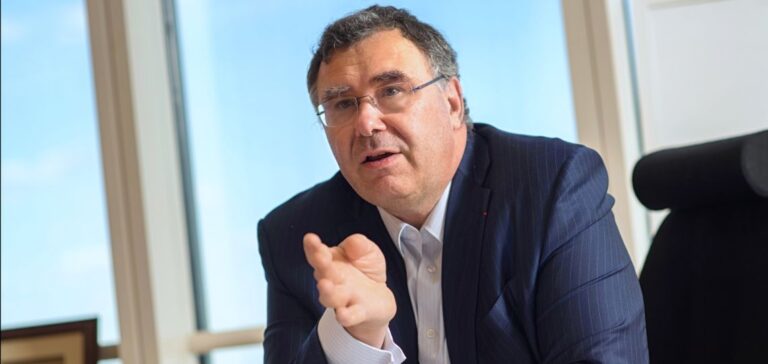TotalEnergies CEO Patrick Pouyanné has complained to French MPs about the complications of regulatory procedures for authorizing renewable energy projects in the country, while the government is struggling to speed up installations.
“It takes 14 authorizations to establish a solar plant in France,” said Pouyanné, who was interviewed at the National Assembly as part of a commission of inquiry into the sovereignty and energy independence of France.
On this occasion, the CEO spoke of the paradox between the “climate emergency” and access to land that looks like an “administrative marathon”, while the bill to accelerate the renewables, adopted in the Senate in first reading in early November, is expected in the hemicycle of the Palais Bourbon on December 5.
This text intends to focus on offshore wind energy -one of the “priorities” according to Mr. Pouyanné- and solar energy.
At the same time, a government bill to accelerate the construction of nuclear reactors is scheduled to be considered by parliamentarians in early 2023, possibly as early as late December.
“The ratio of the number of people (…) in our renewable subsidiary in France and Europe, compared to the megawatts we install, is twice as high as in other countries, because we have to manage all that,” Pouyanné illustrated.
As a result, “right now in France, we are installing half a year of what we should be doing to be on track” with the renewable installation targets in 2023, he said.
TotalEnergies has solar and wind projects in France, but also abroad in countries such as Qatar, South Korea, the United Kingdom and Brazil.
“If we really want to accelerate these issues of building renewable energy, solar and wind, we need to find a way to properly articulate space planning, which can be the responsibility of local governments,” he added.
Patrick Pouyanné also admitted before the deputies that he has never been a “big fan” of nuclear power, which he wants to keep away from, especially since the Fukushima disaster in March 2011.
“This risk, it exists, and we said that it was not possible to put it in our balance sheet,” he said, while warning the deputies: “do not neglect it in your mission”.
This commission of inquiry, initiated by the Les Républicains party and lasting six months, is due to submit its report in April 2023.






















